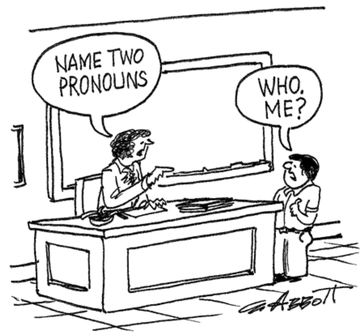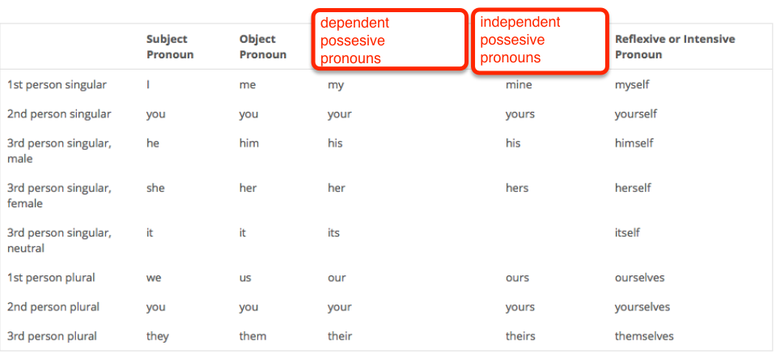Pronouns
|
A nice long
list of pronouns I We Me Us You She He Her Him They Them It That Which Who Whom Whose Whichever Whoever Whomever This These That Those Anybody Anyone Anything Each Either Everyone Everybody Everything Nobody Neither No one Nothing Somebody One Someone Something Few Many Both Several Any All Some Most None Myself Yourself Ourselves Yourselves Herself Himself Themselves Itself Who What Which Whose Whom |
Pronouns replace nouns. A different pronoun is required depending on two elements: the noun being replaced and the function that noun has in the sentence. In English, pronouns only take the gender of the noun they replace in the 3rd person singular form. The 2nd person plural pronouns are identical to the 2nd person singular pronouns except for the reflexive pronoun.

Some great explanations here and useful exercises to practice with
|
